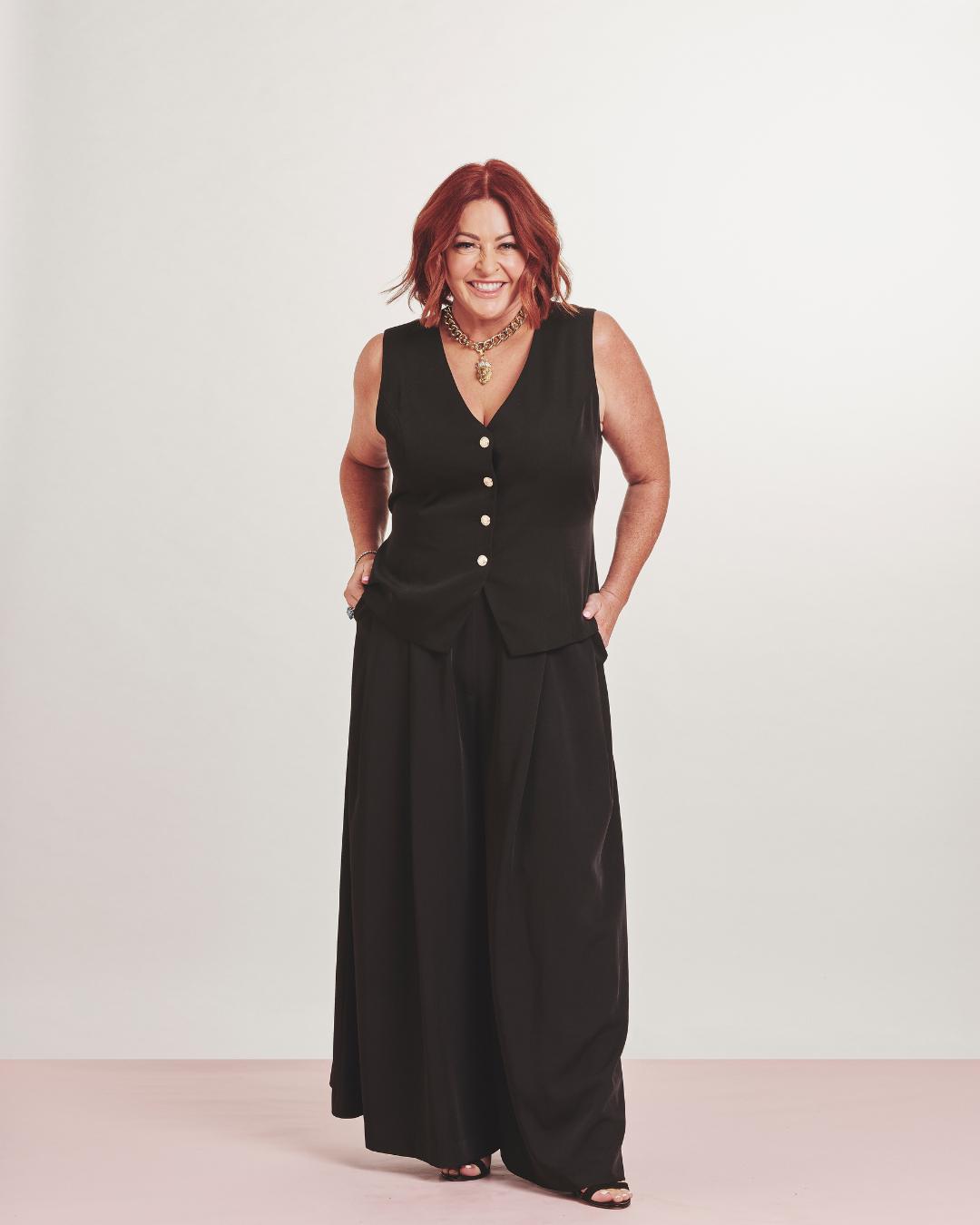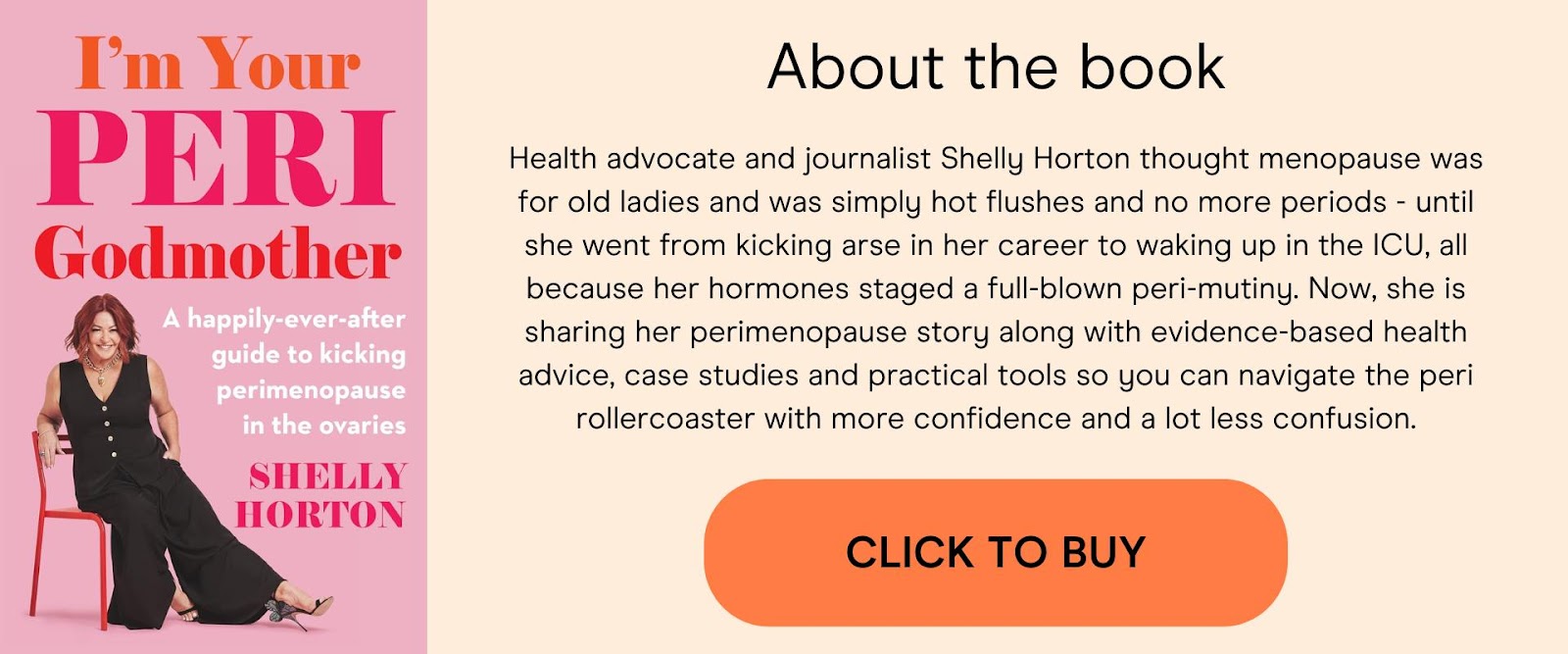Health
5 reasons we remain in the dark about perimenopause

We’re all going through it, so why does perimenopause still feel like a mystery? In this extract from her new book, Shelly Horton unpacks the big reasons so many women are blindsided by “the change before the change”.
By Shelly Horton
If you’re in your 40s and suddenly wondering why your body’s behaving like a stranger and your emotions are all over the shop – hello! You’ve probably just entered the gates of perimenopause, and no, you’re not losing it. Shelly Horton, has turned her own hormonal chaos into a public service: her new book I’m Your Peri Godmother: A happily-ever-after guide to kicking perimenopause in the ovaries. Believe us, you’re going to want her wand-waving wisdom on your side…
Here’s Shelly on the top 5 reasons why we remain in the dark about perimenopause.
1. Most doctors have had zero hours of education about menopause
It’s infuriatingly common for medical professionals to have minimal or no training on menopause, let alone its angsty little sister, perimenopause. I am constantly gobsmacked that an issue that affects 100% of women who live long enough and 50% of the world’s population is not considered important enough for medical students to study in any depth.
My experience of being misdiagnosed and brushed off by an uninformed doctor isn’t unique; it’s a tale many of you no doubt can relate to. This lack of proper medical education fuels confusion and perpetuates the myth that perimenopause is just ‘part of being a woman’, leaving many of us floundering without accurate support or solutions.
2. Medical misogyny: women’s pain is minimised
Women’s pain has been dismissed, downplayed and outright ignored for centuries. Period pain? ‘Just part of being a woman.’ Endometriosis? Well, that takes an average of seven years to diagnose because doctors keep telling women it’s ‘normal’ to be curled up in agony.
When men have pain, it’s a medical emergency. When women have pain, it’s hysteria, stress or simple bad luck. This minimisation doesn’t just make us feel unheard – it delays diagnoses, leaves us suffering and reinforces the toxic idea that we should just ‘grin and bear it’. Enough. Women’s pain is real, and it’s about damn time the medical world took it seriously.

3. Women were considered ‘small men’
Women’s health has been an afterthought in medical research for far too long, and midlife women . . . well, we’re barely a footnote. It wasn’t until 1993 that the US Congress passed a law stating that women must be included in clinical trials. Yep, you read that right – before then, most medical research was done exclusively on men, and scientists just assumed the results would apply to us too.
Apparently, researchers actively avoided including women because our hormones were deemed too ‘complicated’ and would ‘mess up’ their studies. Heaven forbid science deals with the reality of half the population!
But guess what? We are not small men. Our bodies function differently, our hormones fluctuate and our health needs are unique. Yet even today, women’s midlife health issues – especially perimenopause and menopause – get a fraction of the research dollars compared with conditions that predominantly affect men. We deserve better. We need funding, studies and solutions tailored to us, not just hand-me-down medicine designed for blokes.
4. Perimenopause is passed off as a ‘natural process’
‘Natural’ doesn’t mean easy. The idea that perimenopause is a phase we should silently endure is baked hard into societal attitudes. There’s a sense that, since this is a universal experience, it should be handled with quiet stoicism.
The fabulous Dr Kelly Casperson, a urologist and menopause expert, sums up how ridiculous this attitude is in her book You Are Not Broken brilliantly. Her perspective is that, if we’re insisting on ‘natural’ ageing, then we should go ahead and toss our glasses in the bin. Who needs to see properly? Natural ageing means we should also accept dry skin, cancers, excruciating childbirth and sunburn without intervening. But we don’t – we use preventions, we seek medical treatment, we improve our lives.
So why should menopause be any different? This expectation to soldier on without medical intervention or open dialogue leaves women vulnerable, battling symptoms alone and feeling inadequate when they don’t breeze through it with a smile.
5. Previous generations were raised to not discuss it
Let’s talk about the ‘mum muteness’. Our mothers (and their mothers before them and before them) were coached in the school of stiff-upper-lip silence when it came to discussing anything involving female anatomy.
They passed on recipes, knitting tips and ‘how to keep your whites white’, but no wisdom about mood swings, epic periods or waking up drenched in sweat at 3am. Sharing perimenopause stories wasn’t done; it was taboo, a private misery.
This secret women’s business created a legacy where perimenopause has been relegated to the shadows, isolating women – you and me – who need that shared knowledge most. Knowledge is power. So, my friends, it’s time for some facts.

Text from I’m Your Peri Godmother by Shelly Horton. Murdoch Books RRP $34.99.
Citro may receive a small commission at no cost to you on any orders placed using the book links in this article.
The information on this page is general information and should not be used to diagnose or treat a health problem or disease. Do not use the information found on this page as a substitute for professional health care advice. Any information you find on this page or on external sites which are linked to on this page should be verified with your professional health care provider.
Feature image: iStock/izusek
More light on women’s health:
